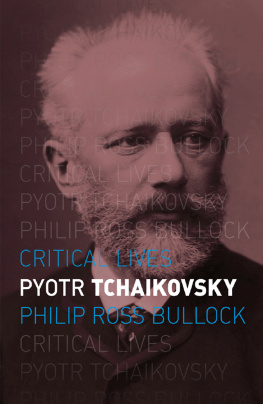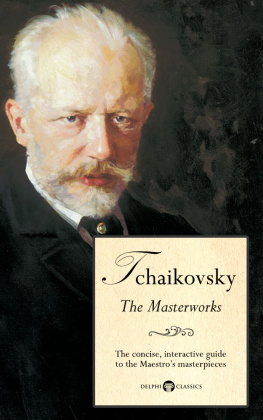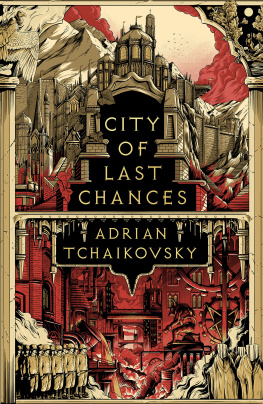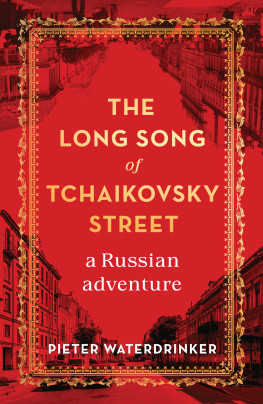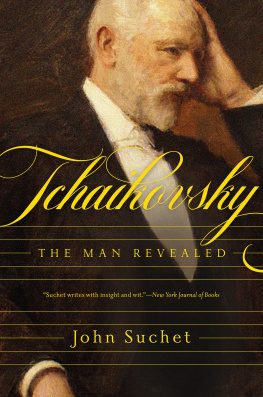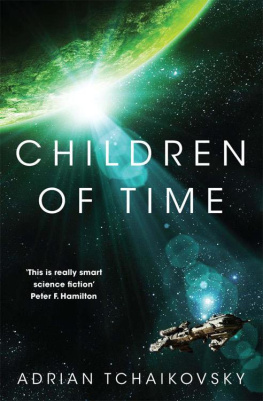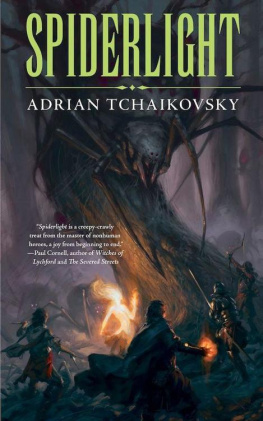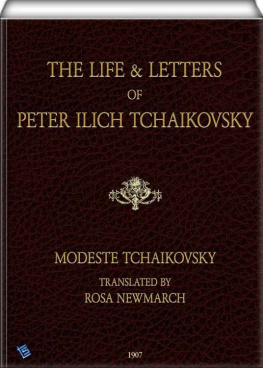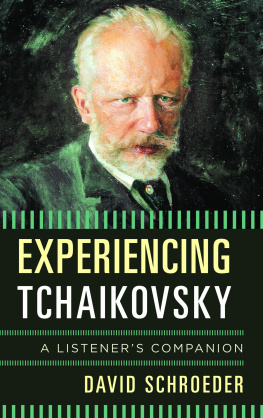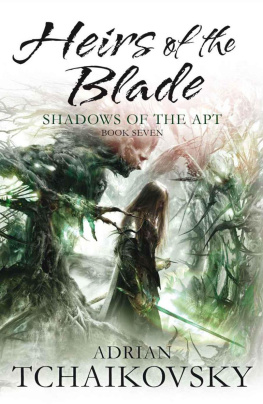Pyotr Tchaikovsky

Titles in the series Critical Lives present the work of leading cultural figures of the modern period. Each book explores the life of the artist, writer, philosopher or architect in question and relates it to their major works.
In the same series
Antonin Artaud David A. Shafer | Franz Kafka Sander L. Gilman |
Roland Barthes Andy Stafford | Frida Kahlo Gannit Ankori |
Georges Bataille Stuart Kendall | Yves Klein Nuit Banai |
Charles Baudelaire Rosemary Lloyd | Akira Kurosawa Peter Wild |
Simone de Beauvoir Ursula Tidd | Lenin Lars T. Lih |
Samuel Beckett Andrew Gibson | Stphane Mallarm Roger Pearson |
Walter Benjamin Esther Leslie | Gabriel Garca Mrquez Stephen M. Hart |
John Berger Andy Merrifield | Karl Marx Paul Thomas |
Jorge Luis Borges Jason Wilson | Henry Miller David Stephen Calonne |
Constantin Brancusi Sanda Miller | Yukio Mishima Damian Flanagan |
Bertolt Brecht Philip Glahn | Eadweard Muybridge Marta Braun |
Charles Bukowski David Stephen Calonne | Vladimir Nabokov Barbara Wyllie |
William S. Burroughs Phil Baker | Pablo Neruda Dominic Moran |
John Cage Rob Haskins | Georgia OKeeffe Nancy J. Scott |
Albert Camus Edward J. Hughes | Octavio Paz Nick Caistor |
Fidel Castro Nick Caistor | Pablo Picasso Mary Ann Caws |
Paul Czanne Jon Kear | Edgar Allan Poe Kevin J. Hayes |
Coco Chanel Linda Simon | Ezra Pound Alec Marsh |
Noam Chomsky Wolfgang B. Sperlich | Marcel Proust Adam Watt |
Jean Cocteau James S. Williams | John Ruskin Andrew Ballantyne |
Salvador Dal Mary Ann Caws | Jean-Paul Sartre Andrew Leak |
Guy Debord Andy Merrifield | Erik Satie Mary E. Davis |
Claude Debussy David J. Code | Arthur Schopenhauer Peter B. Lewis |
Fyodor Dostoevsky Robert Bird | Adam Smith Jonathan Conlin |
Marcel Duchamp Caroline Cros | Susan Sontag Jerome Boyd Maunsell |
Sergei Eisenstein Mike OMahony | Gertrude Stein Lucy Daniel |
Michel Foucault David Macey | Igor Stravinsky Jonathan Cross |
Mahatma Gandhi Douglas Allen | Pyotr Tchaikovsky Philip Ross Bullock |
Jean Genet Stephen Barber | Leon Trotsky Paul Le Blanc |
Allen Ginsberg Steve Finbow | Richard Wagner Raymond Furness |
Vclav Havel Kieran Williams | Simone Weil Palle Yourgrau |
Ernest Hemingway Verna Kale | Tennessee Williams Paul Ibell |
Derek Jarman Michael Charlesworth | Ludwig Wittgenstein Edward Kanterian |
Alfred Jarry Jill Fell | Virginia Woolf Ira Nadel |
James Joyce Andrew Gibson | Frank Lloyd Wright Robert McCarter |
Carl Jung Paul Bishop |
Pyotr Tchaikovsky
Philip Ross Bullock
REAKTION BOOKS
For Abi, Toby, David and Helen
Published by Reaktion Books Ltd
Unit 32, Waterside
4448, Wharf Road
London N1 7UX, UK
www.reaktionbooks.co.uk
First published 2016
Copyright Philip Ross Bullock 2016
All rights reserved
No part of this publication may be reproduced, stored in a retrieval system or transmitted, in any form or by any means, electronic, mechanical, photocopying, recording or otherwise, without the prior permission of the publishers
Page references in the Photo Acknowledgements match the printed edition of this book.
Printed and bound in Great Britain by Bell & Bain, Glasgow
A catalogue record for this book is available from the British Library
eISBN: 9781780237015
Contents
Editorial Note
Until 1918 Russia used the Julian rather than the Gregorian calendar, meaning that in the nineteenth century it was twelve days behind the West. For the sake of simplicity and readability, dates are given solely according to the Julian calendar. Where, in a few instances, dates of events in western Europe and America are given according to the Gregorian calendar, this is noted by use of n.s. (for new style). Most Russian names are transliterated according to a modified version of British Standard 2979: 1958, although familiar versions such as Benois, Cui, Diaghilev and of course Pyotr Ilyich Tchaikovsky himself have been preferred where they exist.
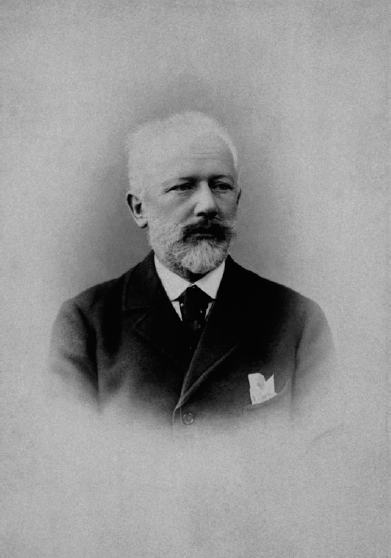
Tchaikovsky aged 52, St Petersburg, 1892.
Introduction: The Intimate World of My Feelings and Thoughts
Writing to his friend and secretary Isaak Glikman on 3 February 1967, Dmitry Shostakovich meditated on the subject of mortality both his own and that of his precursors:
I am thinking a lot about life, death and careers. Thus, recalling the life of certain famous... people, I am coming to the conclusion that not all of them died at the right time. For instance, Musorgsky died before his time. The same can be said of Pushkin, Lermontov and several others. But Tchaikovsky should have died earlier. He lived a little too long, and for that reason his death, or rather his final days were terrible.
Shostakovich was right; Tchaikovsky did not die at the right time (although surely few would agree that he lived a little too long). His death on 25 October 1893 was tragic not just because it was a painful and ignoble affair, but because it has cast a lamentable pall over his life and how that life is written and read. Coming just nine days after the premiere of his Symphony No. 6, a work interpreted by many at the time as a requiem and by some ever since as a suicide note, Tchaikovskys death has been extensively and even excessively interpreted as the key to the life that preceded it. Yet there was nothing inevitable about his death, and still less so about the unfolding of his life. Everything that Tchaikovsky did involved a choice, or at least a conscious examination of his motives. He was decidedly not a victim of circumstance or conspiracy, much less a pathological case study in melancholia or sexual guilt. Rather, he was a sophisticated and self-aware agent in the evolving social, economic and artistic culture of Imperial Russia in the second half of the nineteenth century.

